Donald Trump
Trump taps crypto bros to be in charge: What’s at stake?
Published
5 months agoon
By
admin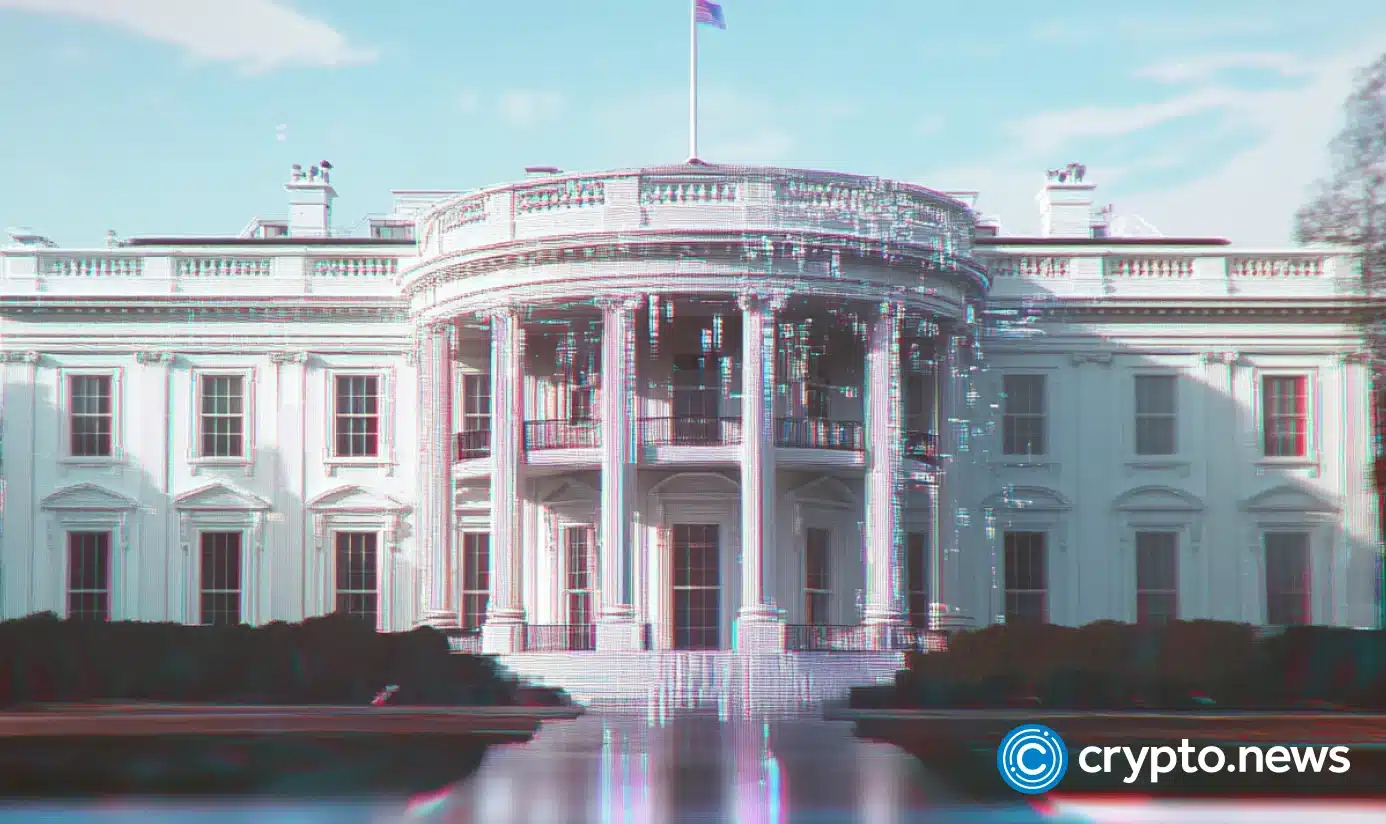
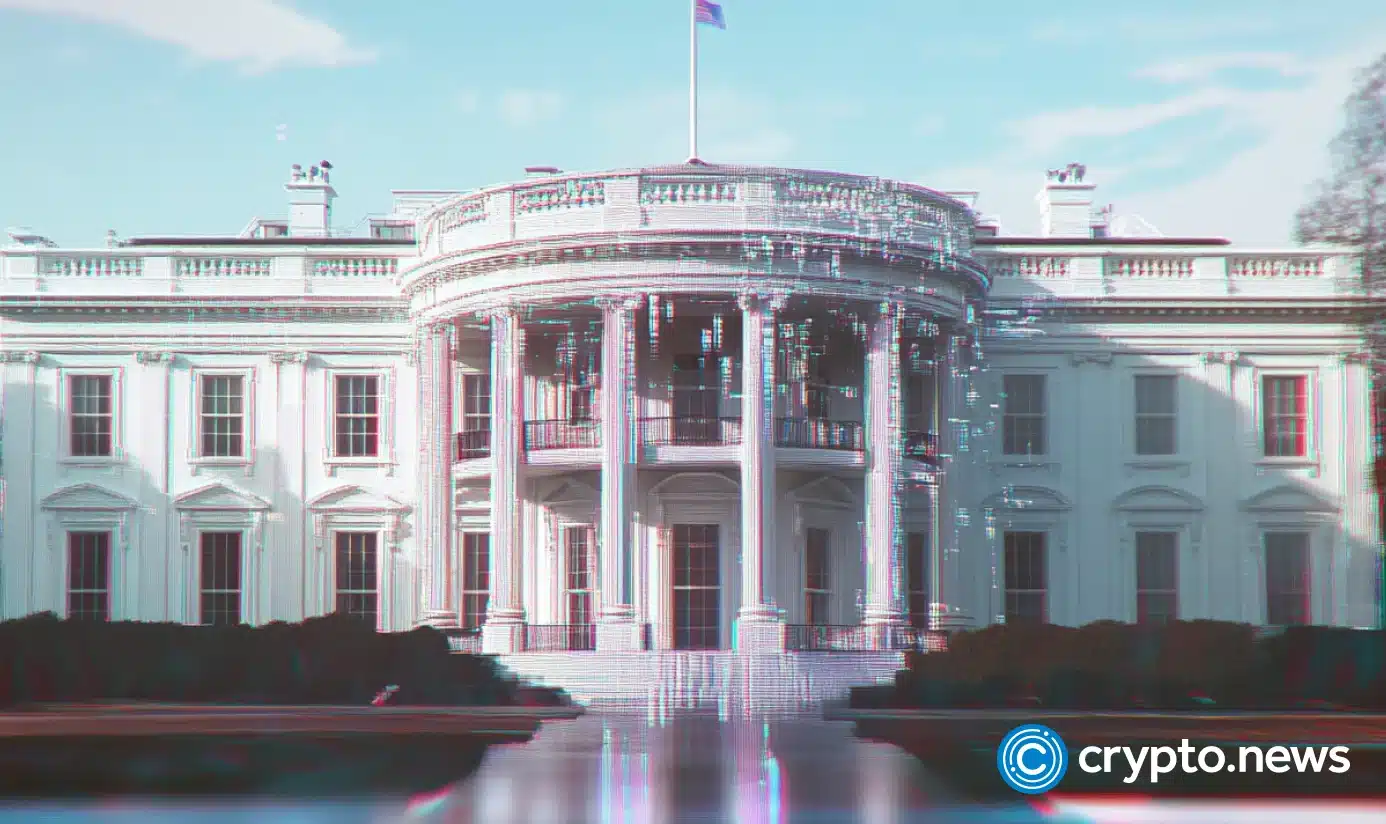
As President-elect Donald Trump prepares for a second term, his incoming administration has already nominated several crypto-friendly faces for key leadership roles.
Voters who bought into the Republican rhetoric that the Biden administration led a so-called “war on crypto” are likely excited. After all, Trump is the first elected official to hawk his own digital currency.
While cryptocurrency awareness is relatively high in the U.S., most Americans remain disinterested. According to a Pew Research study, roughly six-in-10 Americans (63%) say “they have little to no confidence that current ways to invest in, trade or use cryptocurrencies are reliable and safe.”
But with the U.S. Securities and Exchange Commission poised for an overhaul, and a slate of cryptocurrency advocates (listed below) jockeying for cabinet or council positions, the era of crypto cronyism within the U.S. executive branch is upon us — whether Americans like it or not.
What could go wrong?
Scott Bessent
Trump’s nominee for Treasury Secretary, Scott Bessent, is a well-known cryptocurrency advocate. The former Soros Fund Management CIO made headlines when he expressed excitement about crypto’s potential to revolutionize finance, aligning it with Republican ideals of freedom and innovation.
The 62-year-old hedge fund manager has been vocal about distancing crypto’s future from the likes of Sam Bankman-Fried, framing Bitcoin (BTC) as a unifying economic opportunity for younger generations disillusioned by traditional markets.
Should Bessent be at the helm of the Treasury, he would likely shake up digital assets and reduce the risk of severe tariffs.
Howard Lutnick
Cantor Fitzgerald CEO Howard Lutnick, Trump’s pick for Commerce Secretary, is reportedly in talks with Tether, the largest stablecoin operator, to spearhead a $2 billion lending initiative.
Known for steering Cantor Fitzgerald into crypto trading, Lutnick’s embrace of digital assets demonstrates his knack for blending traditional finance with emerging technologies. If the Tether partnership materializes, it could expand access to capital while deepening the role of stablecoins in global financial systems under Lutnick’s leadership.
Thank you, President Trump for your trust in me to help Make America Great Again. As the next Secretary of Commerce, I will join the best administration the US has ever seen and unleash our full economic potential. pic.twitter.com/CTr0sdH6nt
— Howard Lutnick (@howardlutnick) November 19, 2024
Elon Musk and Vivek Ramaswamy
Trump’s audacious proposal to create the “Department of Government Efficiency” (DOGE) has drawn attention not just for its acronym, but for the crypto bulls that wish to be at the helm.
Tesla CEO Elon Musk, a longtime proponent of Dogecoin (DOGE), and biotech entrepreneur Vivek Ramaswamy are tasked with slashing $2 trillion annually from federal programs like Medicare and Social Security. Ramaswamy has proposed deleting entire agencies.
There are well over 400 Federal agencies.
I was once in a meeting with a new agency that was being formed, but it didn’t have a name yet.
The reason it didn’t have a name was that all the good acronyms were taken! https://t.co/0Xvei7nWln
— Elon Musk (@elonmusk) November 21, 2024
While Congress must greenlight the department’s formation, it’s worth noting that it’s a real possibility considering the GOP’s majority in the U.S. Senate and the House of Representatives.
Brad Garlinghouse
Ripple (XRP) CEO Brad Garlinghouse praised Trump for nominating Bessent as “Treasury Sec.”
I don’t want to get too far ahead of myself but…
Scott Bessent is the perfect pick by @realdonaldtrump!
He will be the most pro-innovation, pro-crypto Treasury Sec we’ve ever seen
— Brad Garlinghouse (@bgarlinghouse) November 23, 2024
But Garlinghouse, himself, is a prominent player in Trump’s crypto strategy. He reportedly held discussions with Trump’s inner circle, suggesting he could — or has had — some say in hiring decisions.
In addition to advocating for the removal of SEC Chair Gary Gensler, Garlinghouse envisions a digital asset market structure bill moving forward in the Senate.
Brian Armstrong
Coinbase CEO Brian Armstrong met with Trump, according to Reuters. While it’s unclear what they discussed, reports suggest Armstrong is keen on joining Trump’s planned Bitcoin and crypto presidential advisory council.
Either way, Armstrong is voicing his thoughts on who should be in charge. Earlier this month, he tossed out the idea of replacing Gensler with SEC commissioner Hester Peirce, aka “Crypto Mom” in the crypto world, who’s been throwing some serious shade at Gensler’s crackdown.
And if Peirce isn’t available, there’s always Republican SEC commissioner Mark Uyeda, who once teamed up with her to rebuke the agency for what they consider “misguided and overreaching” cases against crypto companies.
Jeremy Allaire
Allaire, the chief executive of the crypto company Circle, is also interested in joining the council. According to the New York Times, Allaire and other crypto pros are hounding Trump’s camp for more information.
Allaire was even excited when Trump said he wasn’t a fan of Bitcoin back in 2019.
Possibly the largest bull signal for BTC ever. Crypto now a Presidential / Global policy issue. People everywhere will embrace a mix of sovereign and non-sovereign digital currency. https://t.co/PK79wmCddM
— Jeremy Allaire – jda.eth / jdallaire.sol (@jerallaire) July 12, 2019
Other entrepreneurs are following Allaire’s lead. One executive told the Times on background that he’s “harassing everyone” he knows in Trumpworld with the hope of landing a seat on the crypto council.
Source link
You may like


Tariff Carnage Starting to Fulfill BTC’s ‘Store of Value’ Promise


The cost of innovation — Regulations are Web3’s greatest asset


Best Crypto to Buy as Derivatives Exchange CME Set to Launch XRP Futures
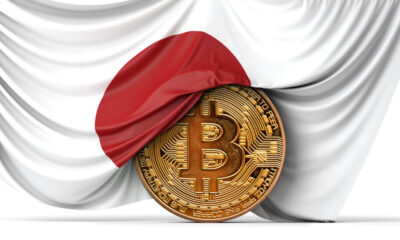

Metaplanet Buys Additional ¥1.92 Billion Worth Of Bitcoin


Here Are Four Signs the Stock Market Has Bottomed, According to Fundstrat’s Tom Lee


Bitcoin dips below $94,000 as ETFs record $3b weekly inflow
Donald Trump
Trump Memecoin’s 85% Weekly Surge Defies Democrats’ Call for Impeachment, Massive Unlocks
Published
18 hours agoon
April 26, 2025By
admin
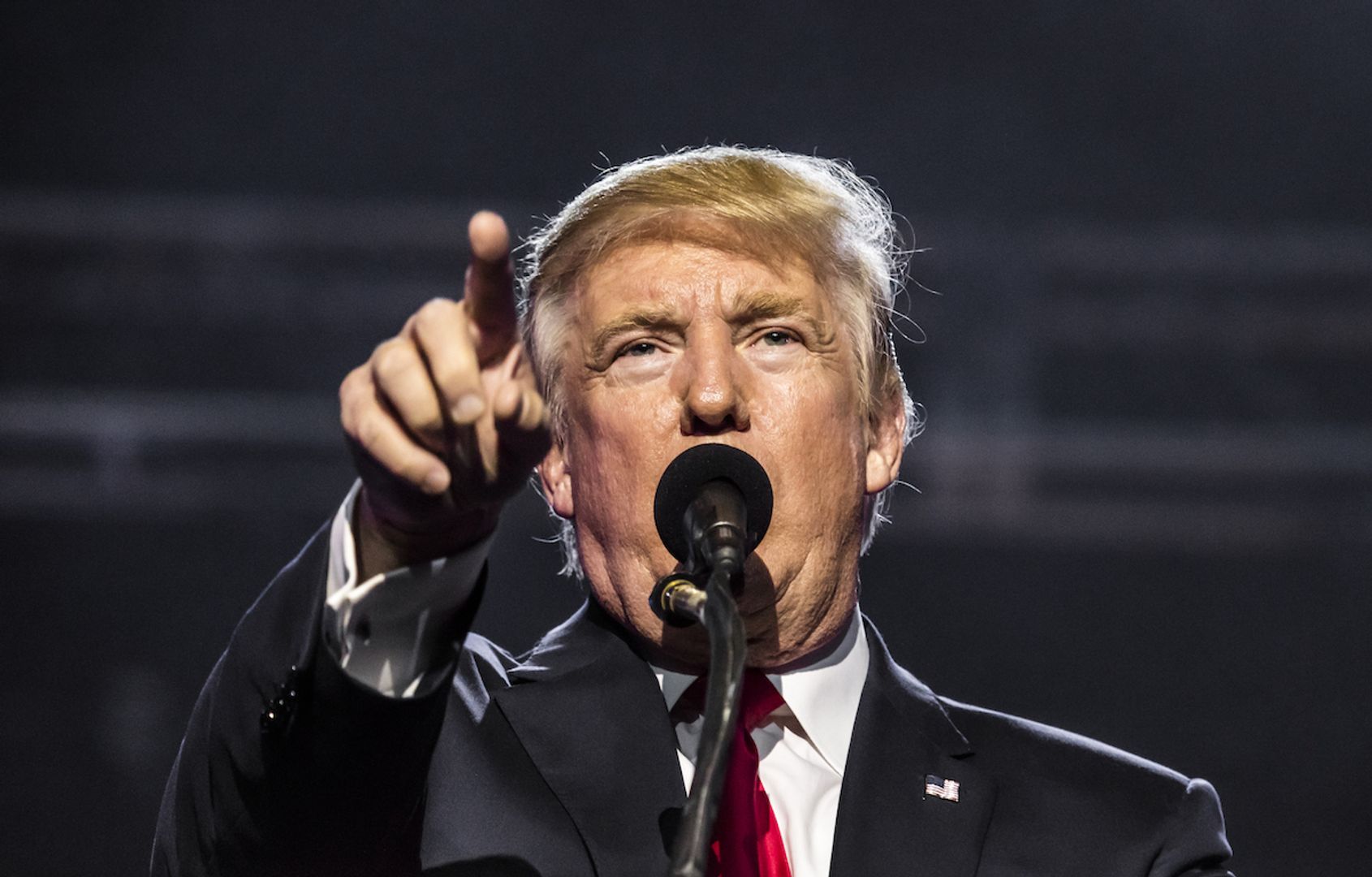
TRUMP, the memecoin tied to U.S. President Donald Trump, is up about 16% in the last 24 hours, even as Democratic lawmakers cite the president’s involvement with the token as potential grounds for impeachment and after a massive unlock earlier in the month.
At a town hall on Friday, Sen. Jon Ossoff (D-Ga.) pointed to the crypto project offering its top holders an invitation to a dinner event with President Trump, calling it a clear case of selling access to the presidency, NBC News reports.
“When the sitting president of the United States is selling access for what are effectively payments directly to him. There is no question that that rises to the level of an impeachable offense,” Ossify said.
U.S. Senators Adam Schiff (D-Calif.) and Elizabeth Warren (D-Mass.) also sent a letter on April 25 to the U.S. Office of Government Ethics asking for an investigation to determine if President Trump violated federal ethics rules by inviting top investors.
Read more: Dinner With the U.S. President? All You Need Is $420 Worth of TRUMP
The allegations stem from an announcement that a private dinner will be held on May 22, where the top 220 TRUMP memecoin holders can meet with the U.S. President.
Still, the TRUMP token has kept on rising. The memecoin surged over 70% after the event was announced and has already been up 85% over the last seven days.
The rise came even after the token saw a massive $320 million unlock earlier this month, significantly inflating its circulating supply. In less than three months, TRUMP token is set to endure an additional unlock of 25.1% of its current circulating supply, at the time of writing, worth nearly $780 million.
Despite the recent rise, the token is still down more than 77% from its all-time high above $70, which it saw shortly after launch. Its subsequent price plunge led to an estimated $2 billion of investor losses.
Read more: TRUMP Token Pops 12% After U.S. President Calls It ‘The Greatest of Them All’
Source link
Donald Trump
Dinner With Donald Trump Might Cost Just Over $400, Team Behind his Memecoin Says
Published
2 days agoon
April 25, 2025By
admin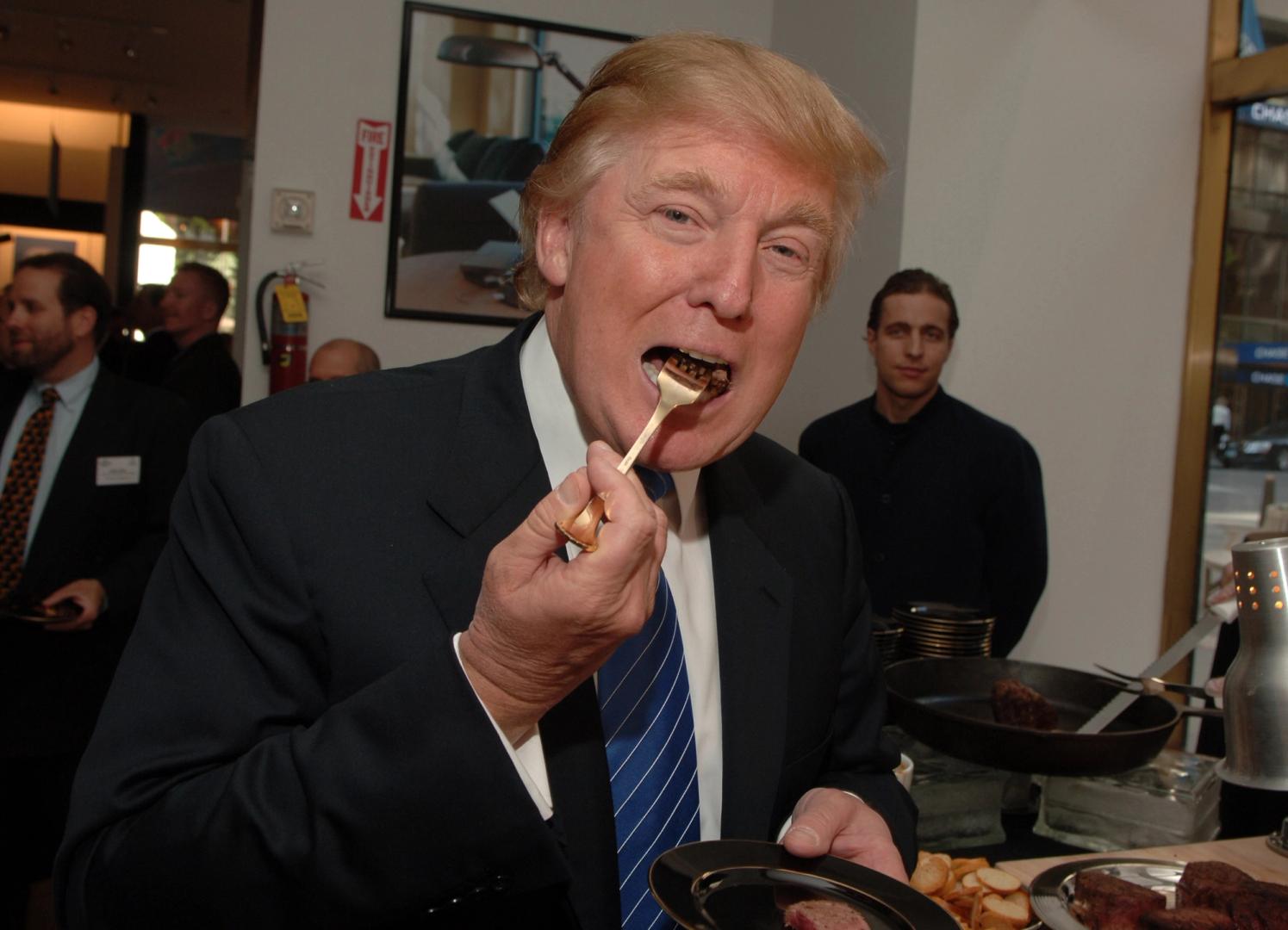
Shaurya is the Co-Leader of the CoinDesk tokens and data team in Asia with a focus on crypto derivatives, DeFi, market microstructure, and protocol analysis.
Shaurya holds over $1,000 in BTC, ETH, SOL, AVAX, SUSHI, CRV, NEAR, YFI, YFII, SHIB, DOGE, USDT, USDC, BNB, MANA, MLN, LINK, XMR, ALGO, VET, CAKE, AAVE, COMP, ROOK, TRX, SNX, RUNE, FTM, ZIL, KSM, ENJ, CKB, JOE, GHST, PERP, BTRFLY, OHM, BANANA, ROME, BURGER, SPIRIT, and ORCA.
He provides over $1,000 to liquidity pools on Compound, Curve, SushiSwap, PancakeSwap, BurgerSwap, Orca, AnySwap, SpiritSwap, Rook Protocol, Yearn Finance, Synthetix, Harvest, Redacted Cartel, OlympusDAO, Rome, Trader Joe, and SUN.
Source link
Bitcoin
Bitcoin Price Recovery At Stake If This Level Doesn’t Hold, Crash Could Erase Gains
Published
3 days agoon
April 24, 2025By
admin
Reason to trust

Strict editorial policy that focuses on accuracy, relevance, and impartiality
Created by industry experts and meticulously reviewed
The highest standards in reporting and publishing
Strict editorial policy that focuses on accuracy, relevance, and impartiality
Morbi pretium leo et nisl aliquam mollis. Quisque arcu lorem, ultricies quis pellentesque nec, ullamcorper eu odio.
Crypto analyst Rekt Capital has revealed that the Bitcoin price recovery could be at stake if it doesn’t hold above a particular level. Failure to hold this support level could cause the leading crypto to crash and erase all gains that it has enjoyed this past week.
Bitcoin Price Needs To Hold Above $93,500 To Avoid Another Crash
In an X post, Rekt Capital indicated that the Bitcoin price needs to hold above $93,500 to avoid another crash. He remarked that the downside deviation is on the cusp of ending, but BTC now needs to stabilize above this support level of $93,500. The analyst added that ideally, the leading crypto needs a weekly close above this level and reclaim it as new support to resynchronize with the former Reaccumulation range.
Related Reading
The Bitcoin price has already rallied above $93,500 this week as the leading crypto decoupled from stocks, with investors viewing it as a safe haven amid the market uncertainty caused by Donald Trump’s tariffs. However, as Rekt Capital suggested, BTC now needs to hold above $93,500 to confirm this breakout and avoid this being another bull trap.

The Bitcoin price is likely to reclaim the $100,000 mark and even reach new highs if it can hold above this crucial support level. Rekt Capital’s accompanying chart showed that BTC could rally to as high as $110,000, marking a new all-time high (ATH) for the leading crypto.
Crypto analyst Ezy Bitcoin also predicted that the Bitcoin price could rally to as high as $166,700. He stated that the Wyckoff Re-accumulation phase is playing out beautifully. The analyst further remarked that the structure points toward continued strength with the spring confirmed and price jumping across the creek. Ezy Bitcoin outlined $131,500, $144,900, and $166,700 as the targets if this bullish momentum holds.
BTC Needs One More Leg On The LTF To Confirm Breakout
In an X post, crypto analyst CrediBULL Crypto stated that the Bitcoin price needs one more leg on the lower timeframes (LTFs) to seal the deal. If that happens, he asserted that dips are for buying until BTC reaches at least $150,000. His accompanying chart showed that the leading crypto could break above $100,000 again on this next leg up.
Related Reading
However, if the Bitcoin price doesn’t record another leg to the upside and instead corrects below $89,000 first, CrediBULL stated that BTC then ends up with a 3-legged corrective structure. He added that it would mean that market participants have to wait longer for the “real” breakout.
At the time of writing, the Bitcoin price is trading at around $92,600, down in the last 24 hours, according to data from CoinMarketCap.
Featured image from Adobe Stock, chart from Tradingview.com
Source link

Tariff Carnage Starting to Fulfill BTC’s ‘Store of Value’ Promise

The cost of innovation — Regulations are Web3’s greatest asset

Best Crypto to Buy as Derivatives Exchange CME Set to Launch XRP Futures

Metaplanet Buys Additional ¥1.92 Billion Worth Of Bitcoin

Here Are Four Signs the Stock Market Has Bottomed, According to Fundstrat’s Tom Lee

Bitcoin dips below $94,000 as ETFs record $3b weekly inflow

Bitcoin Post-Halving Price Performance Is the Worst on Record. Why?

Expert Predicts Start Date For Pi Network Price Pump

GameFi Tokens Show Signs of Life After Gala Games, White House Tie-Up

Bitcoin trades at ‘40% discount’ as spot BTC ETF buying soars to $3B in one week

Bitcoin Continues To Flow Out Of Major Exchanges — Supply Squeeze Soon?

BlackRock’s Bitcoin ETF Sees $643 Million Inflows

DePIN Altcoin Outpaces Crypto Market and Skyrockets by Nearly 44% Following High-Profile Exchange Listing

Solaxy, BTC bull token, and Pepeto gaining momentum as leading 2025 presale tokens

Australian Radio Station Used AI DJ For Months Before Being Discovered

Arthur Hayes, Murad’s Prediction For Meme Coins, AI & DeFi Coins For 2025

Expert Sees Bitcoin Dipping To $50K While Bullish Signs Persist

3 Voting Polls Show Why Ripple’s XRP Price Could Hit $10 Soon

Aptos Leverages Chainlink To Enhance Scalability and Data Access

Bitcoin Could Rally to $80,000 on the Eve of US Elections

Crypto’s Big Trump Gamble Is Risky

Sonic Now ‘Golden Standard’ of Layer-2s After Scaling Transactions to 16,000+ per Second, Says Andre Cronje

Institutional Investors Go All In on Crypto as 57% Plan to Boost Allocations as Bull Run Heats Up, Sygnum Survey Reveals

The Future of Bitcoin: Scaling, Institutional Adoption, and Strategic Reserves with Rich Rines

Ripple-SEC Case Ends, But These 3 Rivals Could Jump 500x

Has The Bitcoin Price Already Peaked?

A16z-backed Espresso announces mainnet launch of core product

Xmas Altcoin Rally Insights by BNM Agent I

Blockchain groups challenge new broker reporting rule

I’m Grateful for Trump’s Embrace of Bitcoin
Trending

 24/7 Cryptocurrency News6 months ago
24/7 Cryptocurrency News6 months agoArthur Hayes, Murad’s Prediction For Meme Coins, AI & DeFi Coins For 2025

 Bitcoin3 months ago
Bitcoin3 months agoExpert Sees Bitcoin Dipping To $50K While Bullish Signs Persist
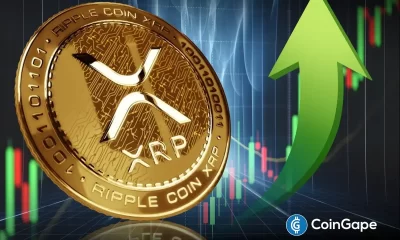
 Ripple Price1 month ago
Ripple Price1 month ago3 Voting Polls Show Why Ripple’s XRP Price Could Hit $10 Soon

 24/7 Cryptocurrency News4 months ago
24/7 Cryptocurrency News4 months agoAptos Leverages Chainlink To Enhance Scalability and Data Access

 Bitcoin6 months ago
Bitcoin6 months agoBitcoin Could Rally to $80,000 on the Eve of US Elections

 Opinion6 months ago
Opinion6 months agoCrypto’s Big Trump Gamble Is Risky

 Altcoins3 months ago
Altcoins3 months agoSonic Now ‘Golden Standard’ of Layer-2s After Scaling Transactions to 16,000+ per Second, Says Andre Cronje

 Bitcoin5 months ago
Bitcoin5 months agoInstitutional Investors Go All In on Crypto as 57% Plan to Boost Allocations as Bull Run Heats Up, Sygnum Survey Reveals


